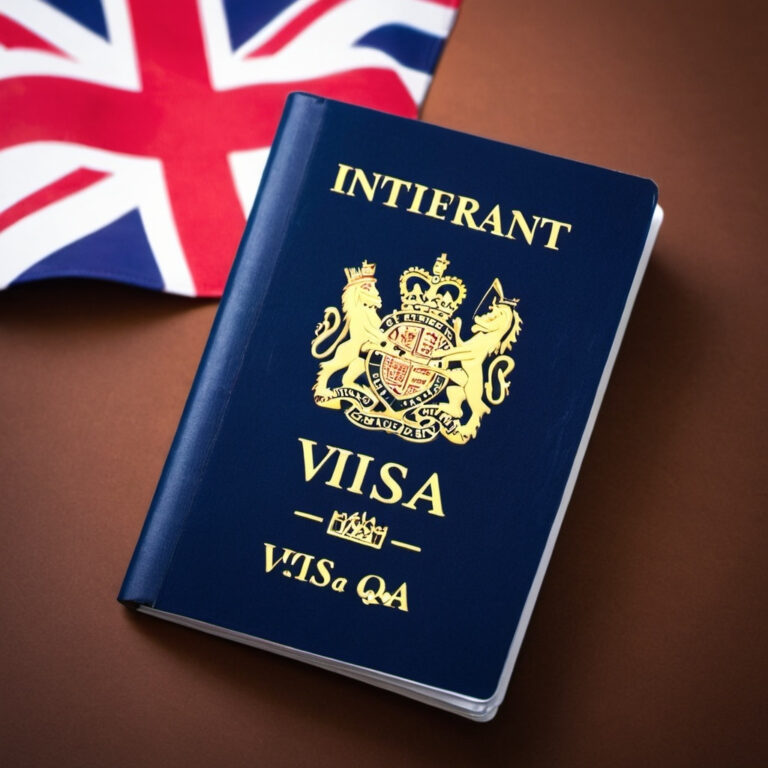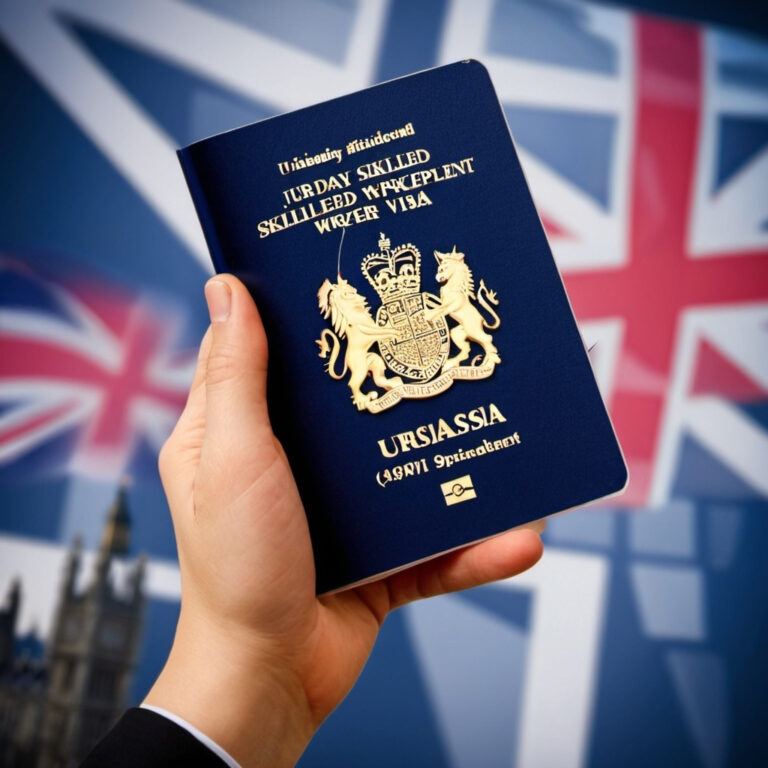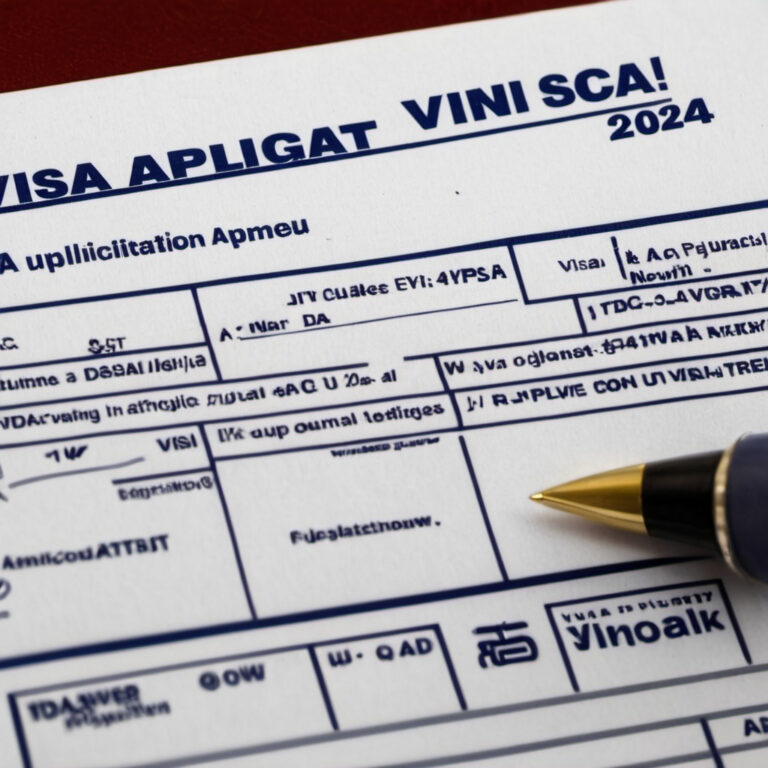UK Skilled Worker Visa Sponsorship License:
The UK Skilled Worker visa, introduced as part of the points-based immigration system, provides a route for skilled foreign workers to live and work in the UK. One of the fundamental aspects of this system is the requirement for UK employers to hold a Skilled Worker Sponsorship License in order to hire non-UK nationals. This sponsorship license allows employers to sponsor skilled workers for job roles that meet certain criteria, helping to fill skill shortages in the UK workforce.
This article provides a detailed guide to the UK Skilled Worker visa sponsorship license, covering what it is, why it’s essential for employers, how to obtain one, and the responsibilities that come with holding a sponsorship license.
A Skilled Worker visa sponsorship license is a legal authorization granted by the UK Home Office to employers, allowing them to hire skilled workers from outside the UK (including EU, EEA, and Swiss citizens post-Brexit). This sponsorship system ensures that foreign workers are recruited to fill genuine vacancies in positions that require skills not readily available in the UK labor market.
The sponsorship license acts as a formal agreement between the employer and the UK government. By holding the license, the employer agrees to comply with immigration rules and maintain specific responsibilities throughout the sponsorship period.
To get a detailed eBook on the UK skilled worker visa sponsorship license click here
Types Of Sponsorship Licenses
There are two main types of sponsorship licenses under the points-based system:
Worker License
A Worker License is used to hire employees in skilled roles that fall under the Skilled Worker visa category. It covers different types of workers, including those applying under the Skilled Worker, Global Business Mobility, and Senior or Specialist Worker routes.
Temporary Worker License
This type of license allows employers to sponsor workers in temporary roles, such as seasonal workers, creative workers, or religious workers.
For the purposes of this guide, we will focus on the Worker License, for employers seeking to sponsor skilled foreign workers.
To get a detailed eBook on the UK skilled worker visa sponsorship license click here
Why Do Employers Need A Sponsorship License?
Employers must have a sponsorship license to legally hire workers from outside the UK for roles that meet the eligibility criteria of the Skilled Worker visa. Without this license, businesses cannot recruit international talent under the Skilled Worker visa scheme, which could hinder their ability to fill essential roles.
A sponsorship license also demonstrates that the employer is committed to complying with UK immigration laws, as it requires adherence to certain regulations and monitoring systems
Some Of The key Reasons Employers Need A Sponsorship License Include:
Access to Global Talent With a sponsorship license, employers can hire workers from across the world, helping them to address skill shortages in their industry.
Workforce Flexibility, Sponsoring skilled workers provides businesses with the flexibility to recruit the best candidates, regardless of nationality.
Business Growth: For businesses in sectors such as healthcare, engineering, technology, and hospitality, being able to recruit foreign talent is essential for growth and competitiveness. To get a detailed eBook on the UK skilled worker visa sponsorship license click here
Eligibility For A Skilled Worker Sponsorship License
To obtain a Skilled Worker sponsorship license, employers must meet several eligibility criteria, ensuring they are trustworthy and capable of complying with immigration requirements. The following conditions must be satisfied:
Genuine Business Requirement
The employer must demonstrate that their business is legally operating in the UK and has a genuine need to recruit skilled workers from overseas.
The business must also have appropriate systems in place to manage the sponsorship responsibilities and prevent illegal working.
Suitable Roles And Skill Levels
The roles for which the employer seeks to sponsor foreign workers must meet the required skill level (typically RQF Level 3 or higher, equivalent to A-Level qualifications). The job must also fall within an eligible occupation as specified by the UK government.
Salary Thresholds
The job offer must meet the minimum salary requirement for the Skilled Worker visa. As of 2024, the salary threshold is generally £26,200 per year or £10.75 per hour, whichever is higher. However, different salary requirements apply for jobs on the Shortage Occupation List (SOL) or if the worker is a new entrant to the labor market.
No Immigration Breaches
Employers must not have any prior history of breaching immigration laws or sponsoring foreign workers without a license.
Key Personnel
The employer must appoint key personnel who will manage the sponsorship process. This includes:
Authorizing Officer: The person responsible for the company’s compliance with sponsorship duties.
Key Contact: The main point of contact between the employer and the UK Home Office.
Level 1 User: The individual who handles the day-to-day management of the sponsorship license and submissions to the Sponsorship Management System (SMS).
To get a detailed eBook on the UK skilled worker visa sponsorship license click here
The Application Process For A Sponsorship License
The application process for a Skilled Worker sponsorship license involves several steps. It’s essential that employers carefully prepare their application, as mistakes or missing information can lead to delays or refusals.
Here’s A step-By-Step Guide:
Determine Eligibility
Before applying, employers must ensure that they meet the eligibility criteria, have suitable roles to sponsor, and have key personnel in place to manage the sponsorship.
Complete The Online Application
Employers must apply online via the UK government’s website. During the application, they will need to provide information about their business, key personnel, and the roles they plan to fill with skilled workers.
Submit Supporting Documents
After completing the online application, employers must submit supporting documents to prove their eligibility. These documents may include:
A copy of the company’s latest audited accounts.
Proof of registration with a professional body (if applicable).
Evidence of premises ownership or lease agreements.
Bank statements showing financial stability.
A full list of acceptable documents is provided in the UK Home Office’s official guidance for sponsorship licenses.
Pay The Application Fee
The application fee depends on the size of the business. As of 2024, the fees are as follows:
Small or charitable businesses: £536.
Medium or large businesses £1,476.
A small business is generally defined as one that meets two of the following criteria:
Annual turnover of less than £10.2 million.
Total assets worth less than £5.1 million.
Fewer than 50 employees.
Home Office Assessment
Once the application is submitted, the UK Home Office will review it. In some cases, they may conduct a compliance visit to the employer’s premises to assess whether the business is capable of meeting its sponsorship responsibilities.
Receive The Decision
The decision on the sponsorship license application is usually made within 8 weeks. If successful, the employer will be granted a sponsorship license, which is valid for 4 years.
Responsibilities of Sponsorship License Holders
Once an employer is granted a sponsorship license, they must comply with several ongoing responsibilities to maintain their license. Failure to adhere to these responsibilities can result in penalties, including the suspension or revocation of the license.
To get a detailed eBook on the UK skilled worker visa sponsorship license click here
Key Responsibilities Include:
Record-Keeping
Employers must keep detailed records of their sponsored workers, including copies of their passports, contact details, and right-to-work documents. These records must be kept up-to-date and accessible for UK Home Office inspections.
Monitoring Employee Status
Employers must monitor the immigration status of sponsored workers and ensure they are legally allowed to work in the UK. If a worker’s visa expires or they no longer have the right to work, the employer must take immediate action.
Reporting To The UK Home Office
Employers are required to report specific changes to the UK Home Office via the Sponsorship Management System (SMS). These changes include:
If a sponsored worker does not turn up for work.
If the worker’s employment is terminated (resignation or dismissal).
Changes in the worker’s job role or salary.
Changes in the employer’s circumstances, such as business name, ownership, or location.
Compliance with UK Employment Laws
– Employers must comply with all UK employment laws, including paying sponsored workers the appropriate salary, providing suitable working conditions, and ensuring that no illegal workers are employed.
Benefits Of Holding A Sponsorship License
Holding a Skilled Worker sponsorship license offers several benefits for UK employers, particularly in sectors facing skills shortages or needing to attract global talent. Key benefits include:
Access to a Wider Talent Pool: Employers can recruit skilled workers from around the world, helping them to fill crucial roles and remain competitive in the global market.
Flexible Workforce Management, Employers have the flexibility to sponsor workers for various skilled roles, allowing them to adapt to changing business needs.
Business Growth and Innovation: By hiring international workers, businesses can bring diverse skills, perspectives, and innovation to their teams, driving growth and success.
Common Challenges And Considerations
While holding a sponsorship license has many benefits, it also comes with challenges that employers should be aware of:
Compliance Burden: Sponsorship involves strict compliance and reporting requirements. Employers must ensure they have the right systems and personnel in place to meet these obligations.
Costs: In addition to the application fee, employers must cover additional costs such as the Immigration Skills Charge, which ranges from £364 to £1,000 per year depending on the size of the business.
To get a detailed eBook on the UK skilled worker visa sponsorship license click here
Renewal Process: Sponsorship licenses must be renewed every four years. Employers need to demonstrate continued compliance with sponsorship duties to secure renewal.
The UK Skilled Worker sponsorship license is a critical tool for employers seeking to hire international talent in today’s globalized economy.






